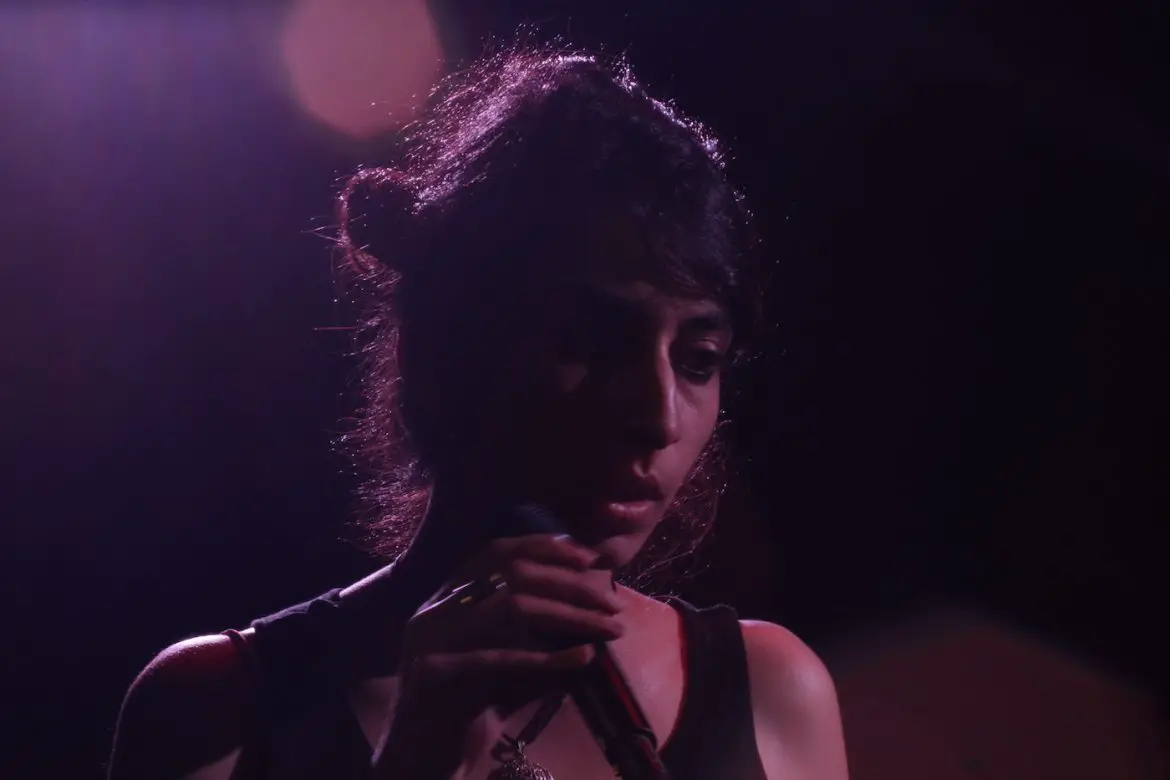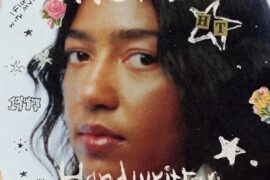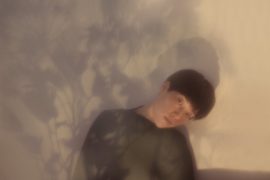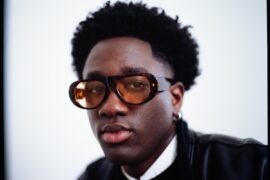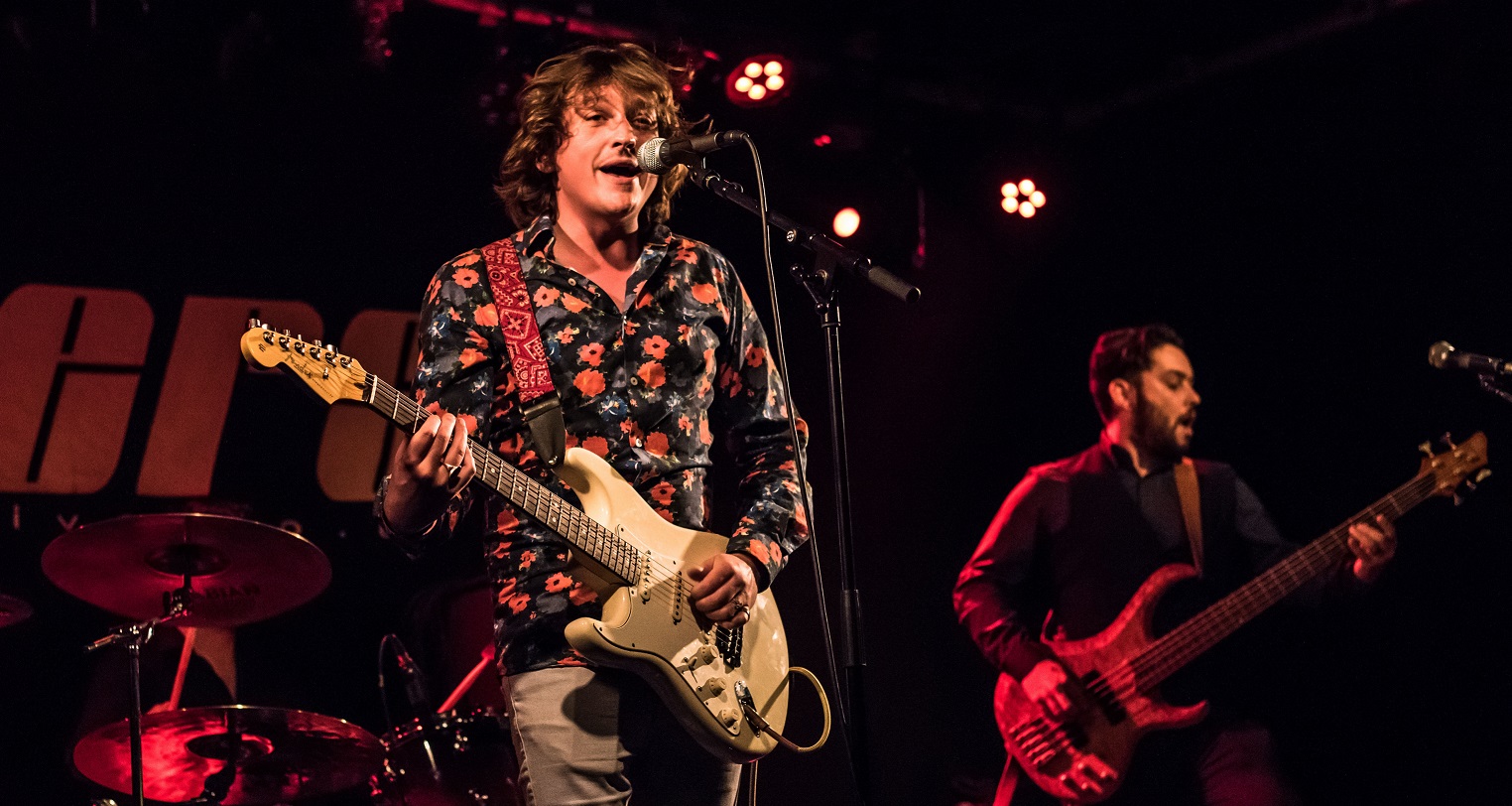“Ethereal” is always a hard word to use, but for some reason, it crops up everywhere and for Arooj Aftab: It’s just impossible not to feel the full ethereal spirit of her music.
Stream: “Mohabbat” – Arooj Aftab
The person has their own personality and sound and quality and experience. They’ve transcended their instrument.
“Ethereal” is always a hard word to use. Every time a critique mentions this byword for airy, spiritual music, its significance has to be reviewed too. An adjective of miscellaneous meaning, you have to account for all of them: “of or relating to the regions beyond the earth; lacking material substance; suggesting the heavens or heaven; marked by unusual delicacy or refinement.”
By this accounting, the term transforms into a multi-use tool that can help answer the singular question of any musical critique: How does one measure music?
It took a long time to phrase this the right way. There might not be stupid questions but sometimes philosophical ones can leave you looking like a jackass. They delight in overstatement. Maybe it’s just that they invite sarcastic tautologies. I tried to word this concept so many ways and my brain, hijacked by memes, still can’t stop mentally picturing Spongebob keeled over and duckfaced with eyes rolling in different directions and riposting, “duh, in measures?”
To be sure, there are quantifiable measurements for music. Notes, hertz, beats, bars and, yes, measures all notch the internal astrolabe that charts every new composition or piece of music to the astral map.
Each is custom to the pair of ears that hosts this instrument, some are less defined than others. Some are just all about that bass. Each effects the inevitable statements of quality and metaphor; stargazer comparatives used to illustrate scope and scale or connect constellations. And each of these elements whether measured in bananas or beats per minute still contributes to a singular measure that separates the music we return to, and the music we do not.
Forget the distinctions between live and recorded, genre or style, hertz or gain levels, patches or tempos: music is measured in the places it takes us.
This ability to transpose persons beyond themselves—eliciting a chill, a drop of the heart, a lump in the throat, or an otherwise groovy inner vision—is what imbues music with a divine wind, links it to a human wonder and colors any answer as to why music has filled everything from the cathedral to the tiny dive bar alike. Paint it in stain-glassed metaphor or detail it with a five-line staff, it only highlights how we perceive the music rather than how it is.
For those of us locked out of the recording studio, sometimes its hard to imagine that the people making the music use more painterly language and idiomatic descriptions to compose it rather than the lines, dots, hashtags and clefs on a sheet.
For Arooj Aftab, her music exists beyond herself. She isn’t trained to any particular instrument and her albums often rely on a combination of classical session musicians and jazz improvisation. Aftab is also convinced her recording strategy isn’t quite as rare as most people would believe, no matter how abstract her results.
What she produces, however, equates to more than any pulp fiction symbology committed to a page.
Aftab’s latest album, Vulture Prince, released on April 23, 2021 via Verve Records.
Stream: ‘Vulture Prince’ – Arooj Aftab
A CONVERSATION WITH AROOJ AFTAB
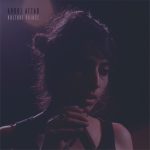
Atwood Magazine: Your music is not of this world, like it's beamed down from somewhere. When and how did you start bringing Vulture Prince all together?
Arooj Aftab: In my head there’s always a whole bunch of songs and ideas. And I’m sure that’s true of many artists. I feel like I’m just always like piecing things together, subconsciously, as I’m doing other stuff. Now that I’m touring, I’ve got all these disjointed conversations with myself happening about the next record so I’m just kind of thinking about it all the time. When more ideas start to feel good I feel like we should start going into the studio.
These disjointed conversations, do they start lyrically or do they start musically?
Arooj Aftab: I think both, at the same time, all at once. It’s kind of like a methodical madness.
Your albums don't have songs or cuts or tracks. They have compositions. What did you learn from the Berklee School of Music that helped you approach composing?
Arooj Aftab: What I learned at Berkeley was music language. The tools of basic composition and jazz as an idiom or as a lifestyle and as a sound. I learned how to deconstruct that music and understand it from the inside out. So that applies to my work, for sure. Its core is the jazz studies that I received because that’s the only music that I’ve ever studied.
How do you feel that you've progressed since Siren Island?
Arooj Aftab: Siren Island was a detour album that I made because I got bit by the analog synth bug and arpeggios. I wanted to see if I could make music that isn’t some pretentious new age thing. I just did that and now I’ve left it. In comparison to [Bird Under Water], Vulture Prince definitely shows like a degree of growth musically, and compositionally. There is a departure from drumset but, at the same time, there’s more embracing the rhythm elements embedded in the other instruments. Obscuring the drumset was a really fun thing to do on this one.
What collaborative element did you bring to Vulture Prince?
Arooj Aftab: I’m a big collaborator. I really like improvisation, I can’t physically sing two things or write two things the same. I collect people in this particular way — a producorial trait that I’ve been building for a long time: The person is not just a harp player.
The person has their own personality and sound and quality and experience. They’ve transcended their instrument. Their personality was open and able to let me guide them as I layer other musicians and pair other musicians and pair parts in tandem with each other and then let it go and let them grow into the parts. The music becomes this beautiful and organic and surprising and unpredictable thing.
And that’s a really difficult thing to coordinate. Because it’s like, what the fuck does that even mean? It’s so ambient in its approach and it takes time to build with those particular musicians. You hear that on Vulture Prince. You hear that thing that I’m trying to describe.
•• ••
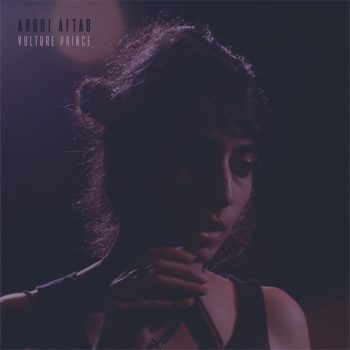
Vulture Prince is the third record from Aftab. Although, her first record is listed as an extended-player and the second she considers more of a canonical aside, so one could claim the 2021 release to be her first definitive long-player. With a runtime that hums at 46 minutes and seven cuts long—and not a single track cut shorter than five minutes proper—the LP’s structure begets comparisons to the hardbop oeuvres from mid-Fifties and early-Sixties jazz.
But this is no hardbop record. Aftab’s jazz pedigree as a student of the heralded Berklee College of Music only informs the spirit of the album she wants to make, not necessarily the choice of instrument or lyrical performance. Instead of horn choruses and ride percussion, Aftab’s roster is filled in turns of classical guitar, harps, violas, cellos synthesizers and light flugelhorn parts. Instead of scatting or invoking a husky, cabaret vocality, Aftab sings in Urdu. The language of her Pakistani heritage and transforms each composition into something like a ghazal, but modified from Farsi to her modern idiom.
From “Baghon Main” and “Inayaat” with Maeve Gilchrist’s enchanting work on harp, to the guitars played by Gyan Riley and Badi Assad on “Mohabbat” and “Diya Hai” respectively, to the many violins from Darian Donovan Thoma, Juliette Jones and more, the album is replete with strings. Aftab fills in the gaps with pianos, synths and flugelhorn players. With such a wide roster of session musicians despite the minimal sound, it’s a wonder how she could translate the music to a live audience.
But she does.
A testament to the strength of her album, it only took three people to carry the entire roster of songs from beginning to end. On her most recent tour, Aftab was joined by Gilchrist and Riley. Awash in blue and black with a small backlight, the colours on stage set the mood for the entire evening: somber and aphotic, pierced only by smallest inspiration of illumination.
Every performance felt like the last word on an already diamond-lined exposition. She was one of those rare performers where taking pictures felt like a disservice to the event. No picture I could have taken would have illustrated just how unreal her performances were. The best I could do were more negatives than pictures.
Several times during the event. I had to stop myself from shooting. This was a performance to stop from the madness of covering a festival and simply enjoy. Anything else would have taken away from just how Aftab handles her stage presence. By no means bombastic, she avoided eye contact with anyone who was not on stage at Boise, Idaho’s El Korah Shrine.
And nestled on the corner of the El Korah, basking in the otherworldly, ethereal power of the show was just about the smartest thing I could do.

•• ••
Atwood Magazine: How do you source your lyrics? Is there like a singular collection or do you have notes littered around a great deal many books?
Arooj Aftab: There’s tons of research. There’s a research incubation period that happens where I’m looking at a lot of different poems from a lot of different writers. Urdu is also written so formally it’s just out of my understanding. I speak really colloquial Urdu but I also left Pakistan when I was like, 19. So I also suck, (laughs) you know what I mean?
If I had grown up with everyone around me speaking Urdu in my 20s and in my 30s then I would have had a much wider grasp on the language, but I just missed all of that. So sometimes I’m reading this shit and I’m like: “What the fuck is this? I don’t even know what they’re saying.” [Poetry] takes time for me to kind of decipher what it really means and then what it means to me and then how can I make this story my story.
What I find most interesting is that most of Vulture Prince is sung in Urdu, but you chose ''Last Night'' to be in English. What was the was the artistic choice there?
Arooj Aftab: It was just a nice thing to do because we speak so much English. I am in the English language all the time and it definitely has a place in my world, in my thoughts and everything. But all of Rumi’s work is in Farsi, so… the lines that I took from [Rumi’s] poem are the only way that I know them: they’re in English. It’s a subtle way for me to edge into singing in English a little bit. And [“Last Night”] makes everything else relevant. When you hear “Last Night,” it helps you make sense to people who don’t speak Urdu. That is a really beautiful thing to do for listeners, if you can pull it off without harming your own integrity.
Your song ''Mohabbat'' just crushed me. I believe it crushed Barrack Obama too. How does it feel to be on the former President's summer playlist?
Arooj Aftab: It’s just crazy. He’s a classy guy and he actively decided that he wanted to take part in culture. In his term there was more live music at the White House than there’s ever been. He embraced music and literature in this way that is commendable. He’s just a huge public figure for fuck’s sake. We all lost it when that happened.
That has to be your validation that you have made it in America, right?
Arooj Aftab: I have worked very hard and I have grown here. I have put roots down here. It’s a hard thing to do as a musician. It’s way more competitive. It’s a really big pond. How many jazz musicians are there, how many how many rock bands does America need? You have to be doing something really special to be making it or whatever that is.
This is what what I’ve wanted, right? You’re kind of in the rat race for so long and your career’s good and you know you’re making great music and you have fans, but your stuff kind of just like plateaus at a point. You never kind of move further than that but I feel like that’s happening now and it’s pretty amazing.

•• ••
Only the dub-infused “Last Night,” bucks the otherwise all-encompassing aesthetic of the album.
With an echoing drumkit, backbeat strum and delicious transposition of Rumi poetry “Last Night” is a cut that simultaneously feels longer than it is and yet finishes more quickly than it’s near six-minute runtime would suggest. Not being Persian, Aftab highlights how this translation is ever still authentic; she sings the words of Rumi as she found them: “Last night my beloved was like the moon/ So beautiful.”
Laying down multiple vocal tracks, Aftab builds a self-made choir that repeats, rephrases and repeats again these lines until breaking, “Even brighter than the sun.” Rending a small rift by her first stanza, a drumset, double bass and electric guitar enter, played by Jorn Bielfeldt, Mario Carrillio and Bhrigu Sahni respectively. The three form the dub-reggae backbone of the cut while Aftab plays with reverb and echo techniques to dilate their time on the record.

In between all of this, Aftab inserts an Urdu verse she learned in Lahore from Pakistani classical vocalist Sara Zaman. Translated it comes out to a call directed squarely upon the listener’s shoulders: “you there, ask (for what you wish for)/ ask your god/ no one ever left their doorstep/ empty handed.” With this combination of Islamic hymnals upon post-Rastafarian musicality, Aftab reconnects the tissue of “Last Night” with the greater conceit of Vulture Prince. And for a moment she spirits away from her sonic collage of Pakistan and Massachusetts into new territory, a jazz-reggae fusion that would do well in any new beatnik establishment.
Live, however, it’s a different story. During her 2021 Treefort Fest appearance, Gilchrist, Ryan and Aftab turned away from the dub inclinations on the record to a pressure-building jazz performance. It all started normally enough, with Aftab proceeding according to the song. But after her verse in Urdu, something changed. Gilchrist and Riley traded solo after solo on harp and guitar, respectively, as Aftab turned to either and just watched as they tried to outdo the other.
When it came back to Aftab herself, each repeated line took a different meaning, a different inflection. Joy, despair, pride, wrath, love, lust and more each line imbued a different element on to Aftab’s words in never ending waves. Each larger than the last, more savage than the last and threatening to pull you under deeper than the last. By the time she was done, there was not a single member of the audience that wasn’t turned around, upside down or otherwise astonished by her on stage prowess.
And as she finished on “the rest is silence,” the audience did the only thing it could do.
And “ethereal” is not the word I would use to describe it.
•• ••
Atwood Magazine: Do you foresee a tour around Pakistan any time soon, considering COVID?
Arooj Aftab: I don’t know; I don’t really have a relationship with Pakistan, musically. In the sense of a career. I have never performed there. I go back to Pakistan to visit family but for the most part I am not connected to Pakistan in that way. Which is not intentional, I’ve just been hustling and living my life and building something here that has felt good. So I don’t really know if touring in Pakistan is on the books.
I just have to imagine that there might be that possibility.
Arooj Aftab: I definitely think it should happen. It’s weird: the fucking music industry as it is, right? It’s structurally so strong in the US, Europe and the UK and that’s kind of it. Not a lot of booking agents or managers or labels know what to do with the Middle East or Africa or South Asia where it’s a massive market but there’s just these big, sort of loose question marks about how do we book, how do we program, who do we call, are we being invited? So somebody figure that out, I have to do my music thing. I can’t be involved in that nonsense.
You bring this beautiful bridge between two worlds, a sort of prism where at once there's Western musical theories and ideas but then at the same time there are Eastern themes and lyrics. The fact that they're even translated in English is a miracle unto themselves.
Arooj Aftab: It’s my fault because after my first record I basically was like, “I’ve invented a genre. This music has never really happened before, it’s called Neo-Sufi.” And then people just love the word Sufi or something. Everybody just wants to go with that.
But now defining what this music is, it has all these different layers and colors of jazz and American folk, acoustic guitar stuff, noise, synth, moog shit and then there’s this element of South Asia in it. There are all these traditions in it and we’re trying to figure out what’s the dominant tradition in it. And then I just realized it’s just really not traditional at all. It’s just really personal. It’s my personal story, sonically.
An extension of your mind.
Arooj Aftab: And all the places that I’ve grown up in and all the places that I call home and all the people that I’ve met. Art should transcend geographical locations at some point, and it’s doing that now.
— —
:: stream/purchase Arooj Aftab here ::
Stream: ‘Vulture Prince’ – Arooj Aftab
— — — —

Connect to Arooj Aftab on
Facebook, Twitter, Instagram
Discover new music on Atwood Magazine
? © Vishesh Sharma
:: Stream Arooj Aftab ::

